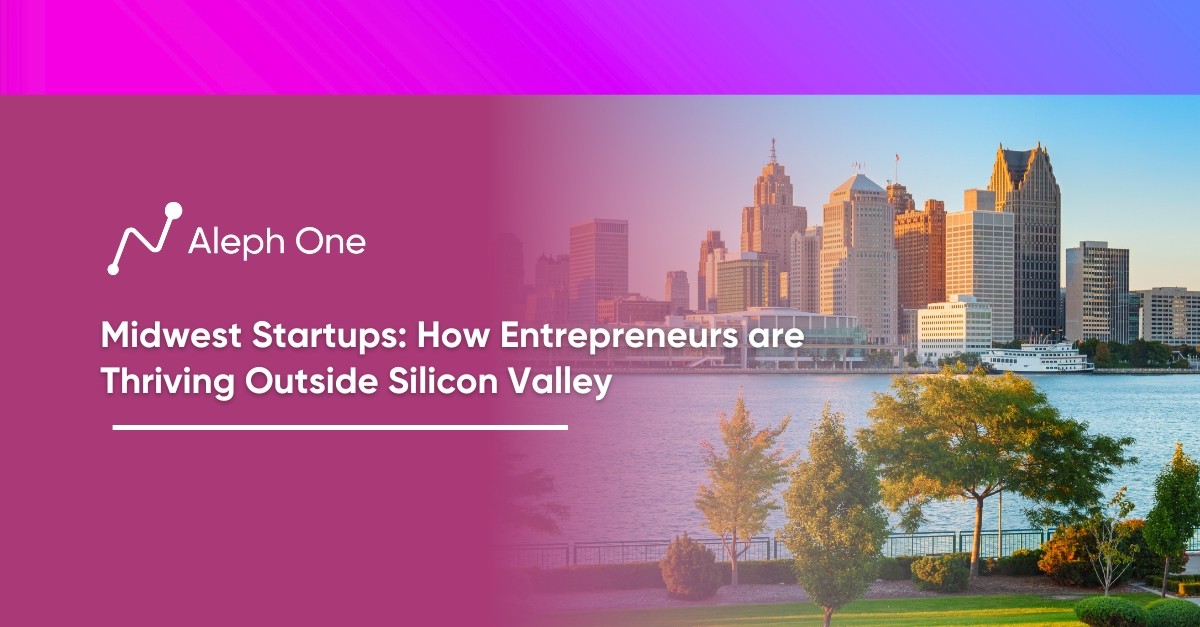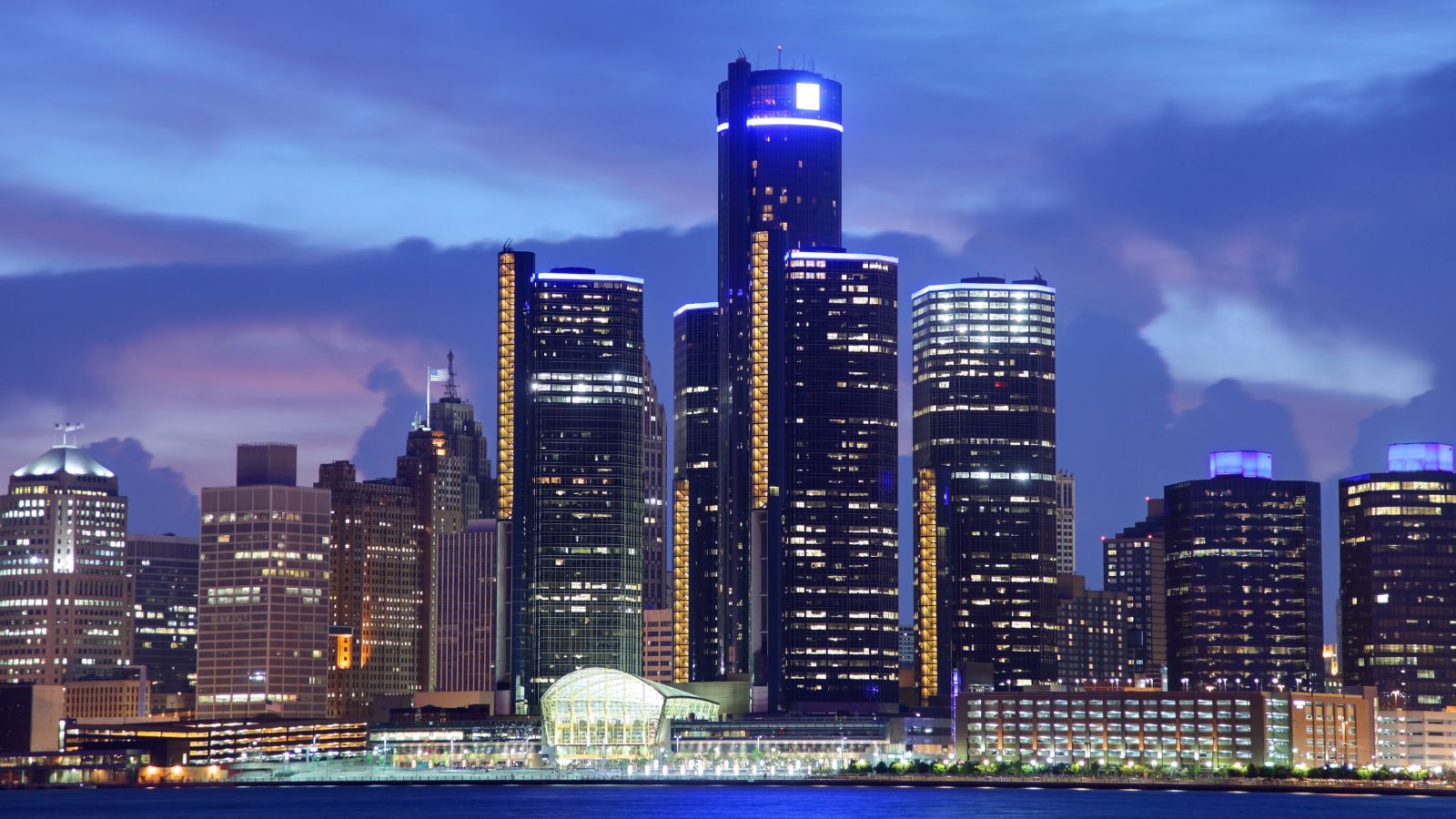Let’s work together to build something amazing. Share your project details and our team will reply to figure out the next steps to your success.

The tech world’s epicenter, Silicon Valley, has long been synonymous with startup innovation and success. However, a shift is underway as skyrocketing costs and intense competition force entrepreneurs to explore new horizons beyond the Bay Area. Nearly half of startups plan to flee Silicon Valley for greener pastures. Amidst this upheaval, the Midwest has emerged as a beacon of promise and opportunity. Offering lower living costs, access to top-notch talent, and a burgeoning venture capital scene, the heartland of America is becoming a vibrant hub for startups eager to make their mark. This article goes into the rise of Midwest startups, showcasing how entrepreneurs thrive in the startup landscape outside of Silicon Valley.

The Exodus from Silicon Valley
The San Francisco Bay Area has long been the center of startup activity in the U.S., but the high costs of living and doing business there make other regions more appealing. According to a 2018 survey by Fundera, nearly 50% of startups plan to leave the Bay Area in the next few years. The Midwest, in particular, with lower costs of living and available talent, is attracting more startups.
The Soaring Costs of Silicon Valley: A Barrier for Startups
Silicon Valley has become the country’s most expensive place to live and work. The median rent for a one-bedroom apartment in San Francisco is over $3,500 per month, and the cost of living in San Jose and other nearby cities is similar. For startups, the average cost to rent office space is $64 per square foot, compared to $38 in Chicago and $22 in Columbus. These excessive costs force startups to relocate or expand to more affordable cities.
Skyrocketing Expenses Beyond Real Estate
Beyond real estate, Silicon Valley’s overall cost of living has skyrocketed. Everything from groceries and gas to services like childcare and healthcare is more expensive in Northern California. According to some estimates, the salary required for a middle-class lifestyle in Silicon Valley is over $300,000 annually. For startups operating on limited funding, these costs could be more sustainable. They are increasingly choosing to launch and scale in cities where their funding will go further.
Accelerating the Rise of Startup Hubs
While Silicon Valley will always remain a vital startup hub, its dominance is waning as more entrepreneurs opt to build their companies in other locations. The Midwest is becoming a popular destination with its lower cost of living, smaller salary requirements, and available talent. The financial case for the Midwest is compelling for startups looking to make the most of their funding and resources. The departure from Silicon Valley is real, accelerating the rise of startup hubs in America’s heartland.
America’s New Startup Hubs
Major cities in the Midwest, including Chicago, Columbus, and Detroit, have established themselves as burgeoning startup hubs. These cities attract more entrepreneurs and venture capital and produce more high-growth startups.
Chicago: Leading the Charge as a Midwest Startup Powerhouse
Chicago has become a leader among Midwest startup cities. It is home to over 7,000 startups and has seen $7 billion in startup funding over the past five years. Chicago startups raised $1.3 billion in the first half of 2019 alone. The city has a strong talent base with over 60 colleges and universities. It also has accelerators like Techstars Chicago and health tech-focused MATTER. Chicago’s startup success stories include Grubhub, Groupon, and Avant.
Columbus, Ohio: The Fastest Growing Startup City in America
Forbes named Columbus, Ohio, the fastest-growing city for startups in America in 2018. It has a low cost of living, access to The Ohio State University, and major corporate headquarters. Columbus startups raised over $500 million in VC funding in 2018. Root Insurance, an auto insurance startup, raised $523 million in funding in 2018, the largest funding round for any Midwest startup. Other Columbus startups seeing major growth and funding include Olive, Updox, and CoverMyMeds.
Detroit: A Thriving Startup Scene Driven by Mobility and Transportation
Detroit’s startup scene is booming, with over $2 billion in startup exits in the past few years. Detroit has resources like Techstars Mobility and the Detroit Mobility Lab. Detroit startups are focused on transportation and mobility, leveraging the city’s automotive industry expertise. Some of the city’s most promising startups include autonomous vehicle startup Argo AI which has partnerships with Ford and Volkswagen, and StockX, a sneaker resale marketplace startup valued at over $1 billion.
With major startup hubs like Chicago, Columbus, and Detroit challenging Silicon Valley, the Midwest is poised to become America’s next capital of entrepreneurship and innovation. The region has momentum, and startups are flocking to the Midwest.
Access to Top Talent
The Midwest is home to some of the country’s top engineering and computer science programs, including Northwestern University, the University of Michigan, and Carnegie Mellon University. These schools produce highly skilled graduates in software engineering, data science, and product design. And many of these graduates are finding job opportunities with Midwest startups, allowing them to stay in the region after they complete their degrees.
University of Michigan: Nurturing Detroit’s Startup Ecosystem with Top Talent
For example, the University of Michigan has a top-ranked computer science program, and it supplies talent to Detroit’s startup ecosystem. The school has an undergraduate entrepreneurship program, and it hosts the Michigan Hackathon and Entrepreneurship Competition, where students can pitch startup ideas. Graduates of the program have gone on to work at Detroit startups like Duo Security, which Cisco acquired for $2.35 billion, and FarmLogs, an agricultural tech startup.
Northwestern University: Leadership in Engineering, Computer Science, and Business Education
Northwestern University is an engineering, computer science, and business education leader. Graduates from these programs are fueling the growth of startups in Chicago and throughout the Midwest. Northwestern alums co-founded some of the most successful Chicago startups. Northwestern also has programs to support student entrepreneurs, including an undergraduate major in entrepreneurship and the Startup Garage incubator.
Top Schools in the Midwest: A Treasure Trove of Talent for Startups
Top schools like Washington University in St. Louis, Purdue, and Ohio State also supply talent to Midwest startups. While coastal tech hubs have Stanford and MIT producing talent, the Midwest has its own set of prestigious schools that educate students on the skills that startups need. And increasingly, these students find opportunities to work at high-growth companies in the Midwest after graduation rather than moving to Silicon Valley or New York. The region’s ability to retain this homegrown talent is a key factor fueling the rise of Midwest startups. With a steady supply of talent from its universities, the Midwest startup ecosystem is poised for continued growth in the coming years.
Strong Base of Fortune 500 Companies
The Midwest is home to many major Fortune 500 companies in industries ripe for innovation, including transportation, healthcare, and agriculture. Midwest startups leverage partnerships with these established companies to tap into existing markets.
Midwest Startups Accelerating Future Mobility
For example, the Midwest has historically been the center of the U.S. auto industry, with major companies like Ford, GM, Chrysler, and Toyota in the region. Now, Midwest startups are working on advanced technologies for autonomous and electric vehicles to supply these automakers. Startups like Ann Arbor-based May Mobility are developing self-driving shuttle services, while Cleveland-based BrightEdge Technologies is building wireless charging pads for electric vehicles. These startups are poised to partner with and supply the auto giants in their backyard.
Healthcare Startups at the Forefront of Innovation
Healthcare is another major industry, and Midwest startups are innovating in healthcare IT, medical devices, and biotechnology. Columbus, Ohio has become a hub for healthcare startups, with over 1,200 companies founded since 2012. Dayton, Ohio-based CareSource, a nonprofit health insurance provider, has partnered with and invested in several Ohio-based healthcare startups. And Cincinnati Children’s Hospital runs an innovation accelerator to support local healthcare startups.
Cultivating Agricultural Tech
The Midwest is also the agricultural heartland of America, and startups are bringing innovations to precision agriculture, agtech, and food production. St. Louis-based ProducePay is a fintech startup providing payment and financing services to farmers. Iowa-based Blue River Technology builds agricultural robotics and artificial intelligence. These startups are able to leverage partnerships with major agricultural companies like Monsanto and John Deere, which are also based in the Midwest.
Tapping Into Established Markets
With major industries and Fortune 500 companies in transportation, healthcare, and agriculture, Midwest startups have significant opportunities to tap into existing markets. By forging partnerships with established companies, Midwest startups can gain key insights, resources, and customers to help them scale. The presence of these industries is a key advantage of the Midwest startup ecosystem.
Increased Venture Capital
Midwest Startups Attracted a Record $20 Billion in VC Funding in 2018
Record-Breaking Venture Capital Influx
Venture capital funding is the lifeblood of startups, and Midwest startups are attracting more VC money than ever before. In 2018, Midwest startups raised over $20 billion in venture capital, breaking previous regional funding records, according to Pitchbook. This enormous influx of capital demonstrates that coastal VC firms recognize the potential in the Midwest.
Coastal VC Firms Setting Up Shop
Prominent VC firms on the coasts are setting up offices in Midwest cities to get in on the action. For example, Silicon Valley-based Sequoia Capital opened an office in Chicago in 2018, while Boston-based Battery Ventures did the same in Ann Arbor. At the same time, Midwest-focused VC funds like Drive Capital, based in Columbus, and Cleveland-based JumpStart have emerged to fund locally-grown startups.
Midwest: The Rising Star of Startup Success
“The Midwest is underappreciated for its startup and tech scene, but that is quickly changing,” said J.D. Vance, a partner at Revolution Ventures, a $2 billion fund with offices in San Francisco and Cincinnati. “With top engineering and business schools, a lower cost of living, and proximity to major multinational companies, the Midwest has all the ingredients for startup success.”
Major Exits and IPOs: Putting Midwest Startups on the Venture Capital Map
Major exits and IPOs are also putting the Midwest on the map for venture capitalists. Columbus-based CoverMyMeds was acquired for $1.4 billion in 2017, while Ann Arbor’s Duo Security was acquired for $2.35 billion in 2018. The same year, Chicago-based Avant and Detroit-based StockX raised over $500 million combined in funding rounds valuing the startups at over $2 billion each.
Midwest Unicorns Attracting Investments from Coastal VCs
“The numbers don’t lie—the Midwest is minting unicorns and producing high-growth companies that are attracting investment from coastal VCs,” said Jim Routh, head of the Michigan Venture Capital Association. “The Midwest startup scene has reached an inflection point, and venture funding is accelerating.”
Fuel for Rapid Scaling
With record capital investment, new funding options from coastal VCs, and several high-profile exits, Midwest startups have the fuel to scale quickly. For Midwest entrepreneurs, the message is clear: follow your dreams, build something great, and the money will come. The Midwest renaissance is here, and venture capital is leading the way.
The Future is Bright: Why the Midwest Will Be Home to Hundreds of Startup Unicorns in the Next 10 years
The Midwest startup ecosystem has built strong momentum over the past few years. With lower living costs, a pipeline of top talent from prestigious universities, access to established industries, and more VC funding than ever, the Midwest has the ideal ingredients to produce hundreds of “unicorn” startups worth over $1 billion in the next 10 years.
1. The Midwest’s Momentum
First, the lower costs of living and doing business in the Midwest compared to Silicon Valley means startups can stretch their dollars further and stay private longer. They have more time to achieve unicorn status. The money that does go into Midwest startups also goes further, allowing companies to pay employees competitive salaries while still having a longer runway.
2. Homegrown Talent is Driving Success
Second, the top tech talent from Midwestern universities is staying local after graduating rather than flocking to the coasts. This homegrown talent fuels Midwest startups and builds companies that achieve unicorn valuations. As more unicorns emerge, a virtuous cycle is created where students see the potential to make a high-growth startup while staying close to home.
3. Proximity to Established Industries is Boosting Midwest Startup Growth
Third, Midwest startups have the advantage of proximity to major Fortune 500 companies in the transportation, healthcare, and agriculture industries. Partnerships and mentorship from established companies boost Midwest startups, and access to domain expertise helps them build solutions for real industry needs. Several Midwest unicorns have emerged in precision agriculture, healthcare IT, and autonomous vehicles.
4. Surging Venture Capital is Fueling Growth
Finally, Midwest startups attracted a record $20 billion in venture capital in 2018, showing that coastal VC firms are taking the region seriously. As more funding flows into the Midwest, startups have the capital to scale rapidly and reach unicorn status. Some Midwest-focused VC funds have also recently emerged, further catalyzing the startup ecosystem.
The Beginnings of the Midwest Startup Renaissance
With lower living costs, a steady stream of top talent, access to major industries, and more VC funding, Midwest startups have the key ingredients for success. The future for Midwest startups is very bright, and the region is poised to produce hundreds of unicorns over the next decade, rivaling Silicon Valley as America’s startup capital. The Midwest startup renaissance has only just begun.
FAQ
Amid the recent shift, how does Silicon Valley plan to maintain its position as a startup hub?
Even with startups migrating to other parts of the country, Silicon Valley retains its allure due to its established ecosystem. The region continues to foster innovation with the presence of significant tech pioneers like Google, Facebook, and Apple. Moreover, initiatives from local governments and private institutions are underway to address the cost of living issues, aiming to make the area more affordable.
How are Midwest universities encouraging their students to pursue entrepreneurship in the region, diverting them from the allure of coastal tech hubs?
Midwest universities are increasingly recognizing the value of entrepreneurship and actively promoting it through various initiatives. This includes creating dedicated curriculums for entrepreneurship, facilitating internship opportunities with local startups, conducting hackathons, and offering seed funding for promising projects. These efforts expose students to the startup culture and encourage them to contribute locally.
Could the funding surge, due to increased interest in Midwest startups, potentially lead to a bubble?
The recent surge in funding does bring an element of risk and could potentially lead to a bubble situation. However, the primary focus of investors appears to be on sustainable business models and prudent cash flow management. This balanced approach, if maintained, could keep the startup ecosystem healthy while fostering continuous growth.
Get the latest news and updates from Aleph One in your inbox.



